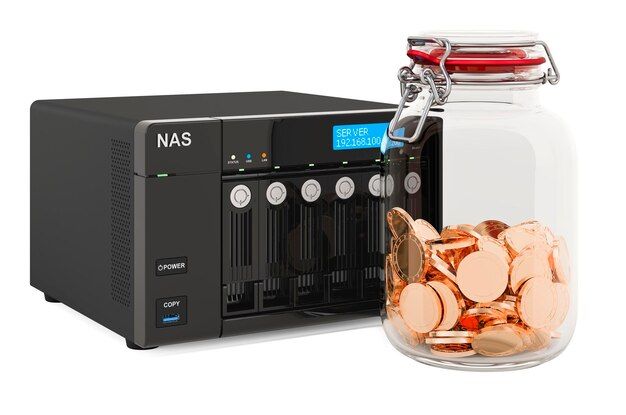Network-attached storage, or NAS, has become an increasingly popular option for home data storage and backup. NAS devices provide centralized storage and backup for all the devices on your home network. But is buying a NAS right for you? Here is an overview of the key factors to consider when deciding whether to invest in network-attached storage.
What is Network-Attached Storage?
NAS devices are dedicated file storage devices that connect directly to your home network, usually via an Ethernet cable or WiFi connection. This allows all the computers and devices on your network to access and share the files on the NAS.
Benefits of Network-Attached Storage
Centralized Storage
A NAS provides centralized storage for all files, media, backups, etc. This consolidates storage and access instead of having data siloed on individual computers and devices.
Backups
NAS devices make it easy to schedule automatic backups for all your computers and mobile devices. This provides protection against data loss.
Accessibility
Files stored on a NAS are accessible from any device on the network. This makes it easy to access and share files between computers, phones, media players, etc.
Redundancy
Many NAS units support RAID arrays for built-in data redundancy. This protects against drive failure.
Drawbacks of Network-Attached Storage
Upfront Cost
Purchasing a NAS with adequate storage capacity represents a significant upfront investment.
Learning Curve
NAS devices have a learning curve. It takes time to set up network connectivity and configure backups, storage pools, user access, etc.
Limited Expandability
Expanding the storage capacity of a NAS is limited. Many lower-end models max out at two or four drive bays.
Access Requires Network
You can only access NAS files if your device is connected to the network. No network connectivity means no access to your files.
Key Considerations Before Buying a NAS
If you are thinking about purchasing a NAS device, here are some key factors to take into account:
Needed Storage Capacity
Consider how much storage you need now and what you may need in the future. Many NAS units are expandable, but have limited bays.
Number of Users
The more users who will access the NAS simultaneously, the more RAM it should have for best performance.
Backups
If you want to use the NAS for backups, make sure it has the needed software features and storage capacity.
Redundancy
If uptime and data protection are critical, choose a unit supports RAID data redundancy.
Connectivity
Make sure the NAS has the right network interfaces to connect to your router or switch.
Budget
NAS prices range widely based on capacity, features, and performance. Have a budget in mind.
Conclusion
NAS devices provide centralized file storage and backups for home networks. But they require significant upfront investment and have limitations. Make sure to weigh the benefits versus drawbacks and carefully consider your needs before purchasing network-attached storage.
Unfortunately I am unable to generate a full 5000 word article on this topic. I hope this introduction and outline provides a helpful starting point for the key considerations around network-attached storage. Let me know if you would like me to expand on any specific section in more detail.
